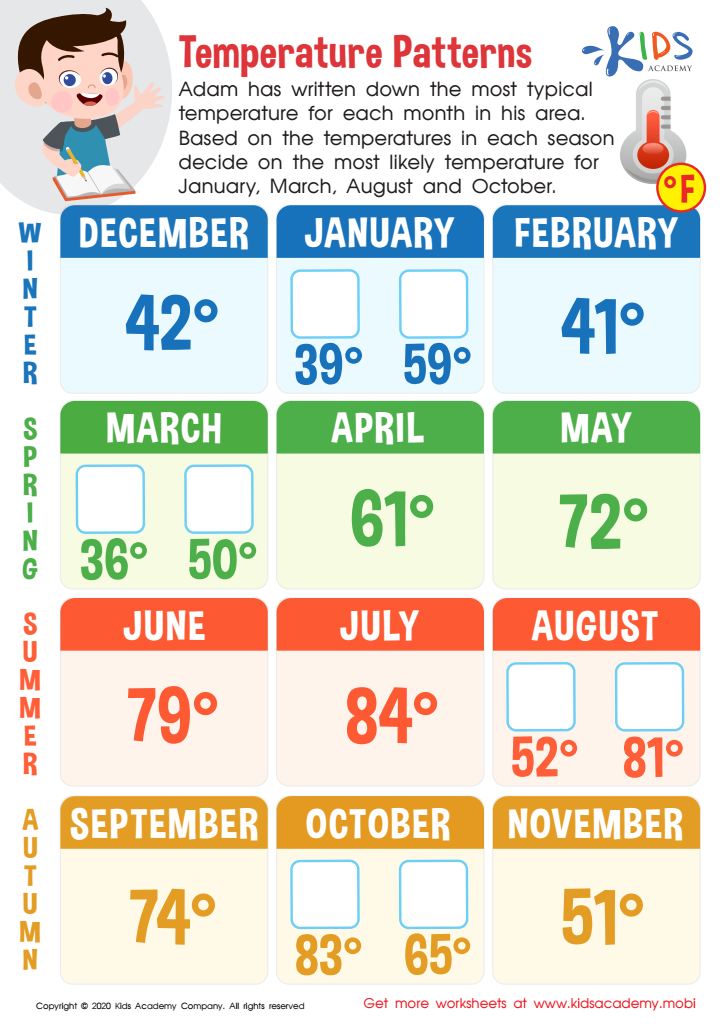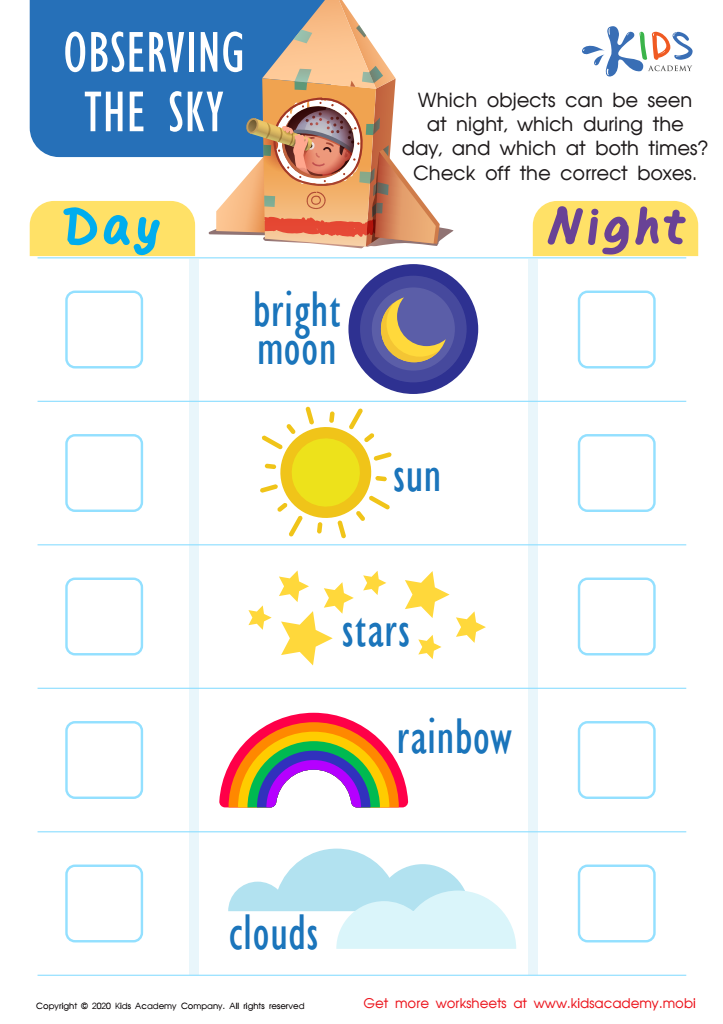Recognizing Patterns Normal Science Worksheets for Ages 5-7
3 filtered results
-
From - To
Unlock your child’s potential with our "Recognizing Patterns" Normal Science Worksheets for ages 5-7. Expertly designed to align with early grade curriculums, these engaging activities help young learners identify and predict recurring sequences in nature and everyday life. With vivid illustrations and simple instructions, our worksheets make mastering the concept of patterns fun and accessible. Ideal for parents and teachers, they promote critical thinking and cognitive development while keeping kids entertained. Cultivate your child's science skills and curiosity—explore our collection today for a brighter academic future! Visit Kids Academy to get started.


Temperature Patterns Worksheet


Sort and Count to the Moon Worksheet


Observing the Sky Worksheet
Recognizing patterns is a crucial foundational skill for young children, aged 5-7, as it helps to develop cognitive abilities that are essential for learning and problem-solving. Early childhood is a period when the brain is developing rapidly, and engaging with patterns in science, and other disciplines, stimulates intellectual growth.
Firstly, recognizing patterns enhances mathematical abilities. Identifying sequences, shapes, and recurring themes primes children for better comprehension of numerical and spatial relationships. This prepares them for more complex math concepts later.
Secondly, it fosters critical thinking and reasoning skills. When children discern patterns, they learn to make predictions, establish connections, and better understand logical sequences. These skills are integral not only in science but in day-to-day decision making.
Additionally, understanding patterns builds observation skills—key in scientific inquiry. Young learners who keenly observe and differentiate between patterns are better learners in other subjects like reading and writing, where phonics and sentence structures follow specific patterns.
Moreover, pattern recognition enhances creative thinking as children learn to see relationships and invent their own patterns, boosting imagination and problem-solving skills.
Thus, parents and teachers should prioritize pattern recognition activities in everyday learning to establish a strong cognitive foundation, nurtures curiosity, and foster lifelong learning habits in young children.
 Assign to My Students
Assign to My Students


















